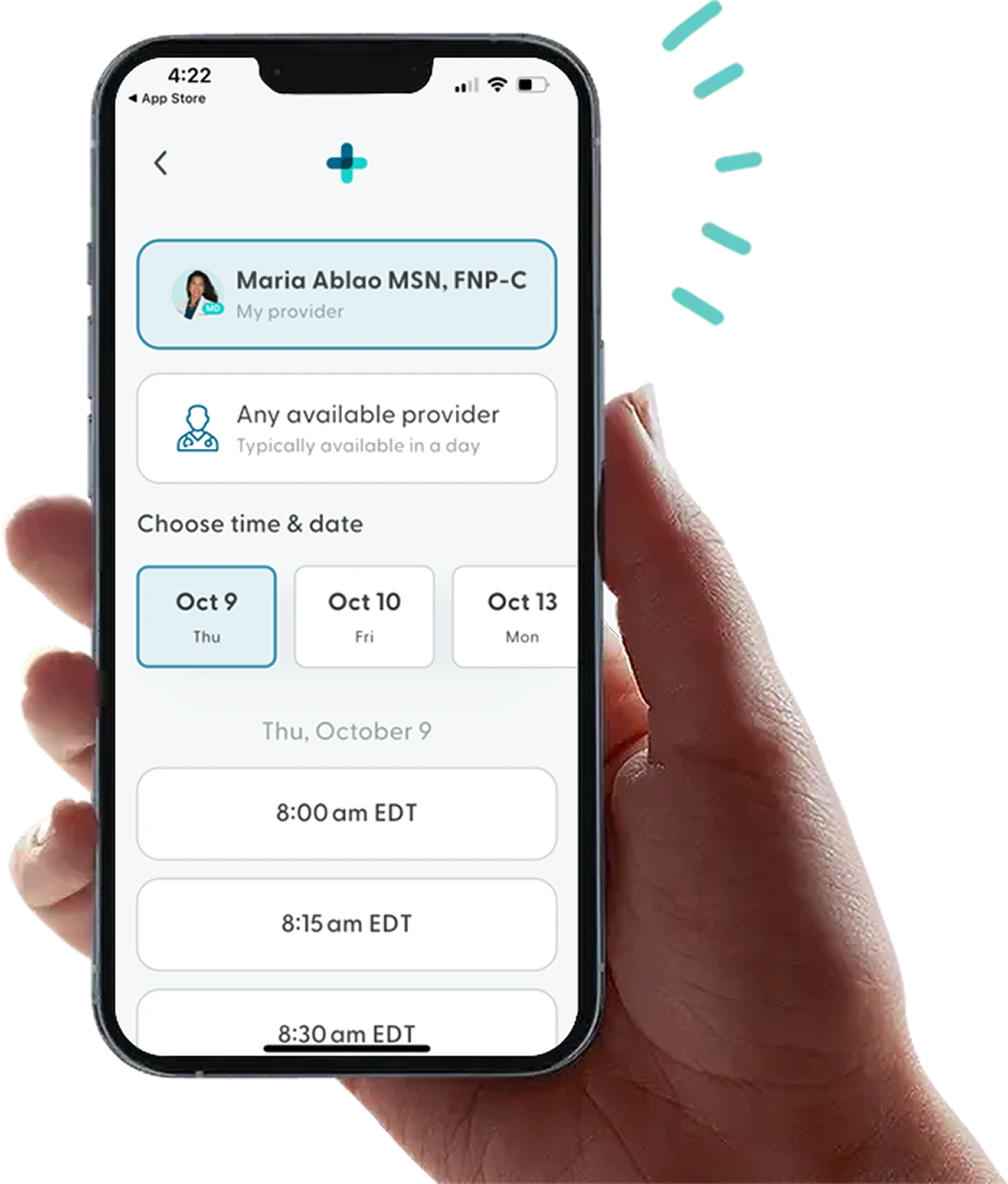HPV vs. Herpes: Understanding the Key Differences
What is Herpes?
Herpes is a viral infection caused by the herpes simplex virus (HSV). There are two different strains of HSV that can cause an infection, HSV-1 and HSV-2.
HSV-1 is primarily associated with oral herpes — sometimes referred to as cold sores — which are painful sores that develop on your lips or inside your mouth. HSV-2 usually causes a genital herpes infection.
A person can contract herpes when they come into contact with the HSV virus, for example through contact with infected genital fluids.
This usually occurs during unprotected vaginal, anal, or oral sex with an infected person.
Take control of your sexual health today!
Don't wait. Schedule a confidential online consultation with an experienced medical professional.


What are the signs of a herpes infection?
If you have herpes, you will usually develop symptoms within three weeks of exposure to HSV. Typical signs and symptoms of a herpes infection include:
Painful blisters and sores in the affected area
Itchiness
Burning sensations around the sores
Swollen lymph nodes
Headaches
After the initial outbreak, the herpes virus can become dormant in the body for years. This increases the chances of additional outbreaks occurring later in life.
What is HPV?
The human papillomavirus (HPV) is a common sexually transmitted infection that can cause genital warts. This condition is usually quite mild and easily treated.
However, some strains of HPV are more severe and can cause cancer of the reproductive organs.
That’s why it’s important to seek professional medical care as soon as you suspect you may have HPV.
How can I tell if I have HPV?
In most cases, HPV infections don’t cause any symptoms. The most common sign of HPV is genital lesions or warts that look like small, flesh-colored bumps.
HPV will rarely cause other symptoms to develop, but some people may experience:
Itchiness in the genital area
Unusual bleeding during or after sex
Abnormal increase in vaginal discharge
Increased dampness in the area where the warts are located
Understanding the Differences Between HPV and Herpes
Although herpes and HPV are both STIs that can cause similar symptoms, it’s important to know the difference between the two conditions to ensure that you seek the right treatment.
Transmission and risk factors
Both conditions can be spread through sexual contact, but HPV can also be transmitted through regular skin-to-skin contact — like kissing or holding hands.
HPV is also more likely to cause lifelong health problems compared to herpes. In fact, HPV is responsible for causing over 50% of reproductive system-related cancers.
Herpes, on the other hand, rarely causes serious medical conditions. However, having an untreated herpes infection may increase your risk of contracting HIV.
Symptoms
Herpes often causes noticeable symptoms like painful blisters and sores. It may also cause flu-like symptoms to develop.
HPV is usually asymptomatic, which means that you can have an infection without even knowing it. In some cases, HPV may cause genital warts.
Treatment
There is currently no cure for HPV. If you’ve been diagnosed with this condition, you can take antiviral medication that will help you manage your symptoms and reduce frequent outbreaks.
You can also get an HPV vaccine against certain strains, which lowers the risk of developing cancer.
Although there is no cure for herpes either, it’s significantly easier to treat compared to HPV.
Herpes treatment usually involves topical creams and prescription medication that are used until sores clear up.
Are HPV or Herpes Infections Medical Emergencies?
In most cases, HPV and herpes aren’t considered medical emergencies. However, it’s important to speak to your healthcare provider if you suspect that you have been infected with either.
Your doctor can provide guidance on testing, treatment, and preventative options that will help determine the best course of action.
Seeking medical attention for HPV or herpes is also highly recommended to avoid transmitting either STI to other people.
In rare cases, HPV and herpes may require emergency medical care. These may include:
Experiencing severe pain, fever, or other flu-like symptoms during a herpes outbreak
Falling pregnant and becoming infected
Noticing unusual growths, lesions, or lumps in your genital area
Receiving an abnormal Pap smear result that indicates HPV
Where Can I Get Professional Care for HPV and Herpes?
If you suspect that you have HPV or herpes and are concerned about any of your symptoms, you can speak to a board-certified physician or nurse practitioner from the comfort of your home.
Head over to LifeMD to schedule a telehealth appointment.
More articles like this
Feel better with LifeMD.
Your doctor is online and ready to see you.
Join LifeMD for seamless, personalized care — combining expert medical guidance, convenient prescriptions, and 24/7 virtual access to urgent and primary care.

 Medically reviewed and edited by
Medically reviewed and edited by 











